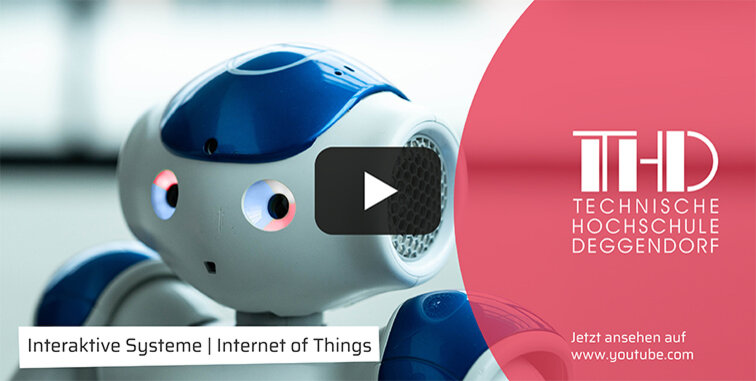Shape Digital Change
Become Part of the Megatrend
The Bachelor's programme Internet of Things will no longer be offered.
It is now part of the study programme Applied Computer Sciences as focus area.
#count%
of all dit graduates
will find a job
within 2 months

The Future is Now
Interactive systems communicate with people as well as with each other in the "Internet of Things" (IoT) or "Internet of Things". The user-friendliness in dealing with people and a purposeful and intelligent processing of information is the first priority. The overriding goal is to progressively support human activities independently and imperceptibly. Applications range from smart homes to industrial production, for example in industry 4.0 manufacturing. This is achieved by the installation of small and smallest computers in sensors and actuators. These permanently process data and communicate with each other, so that all processes, from lighting control to predictive maintenance, are presented intuitively, transparently and controllable to people.
According to forecasts by the Gartner market research institute, sales of "Internet of Things" devices in the consumer sector will double in three years. Companies across all industries are looking for specialists to develop products for this market. New challenges include the use of artificial intelligence, the security and observability of systems, centralized or decentralised information processing close to sensors, and user interaction (IoT User Experience) adapted to IoT needs.
Interactive systems and Internet of Things require creativity and enthusiasm for new technologies. Do you already have your own ideas for a future in which people and things cooperate? Maybe even experience as a maker and know what an Arduino, Raspberry Pi or Fablab is? Then this course is just right for you!
You will learn how to help shape the digitalisation and networking of the world by studying computer science. You will develop ideas, design prototypes and implement them - in hardware and software. The skills and tools you will need will be taught at the Deggendorf Institute of Technology in innovative forms of learning, e-learning, blended learning and smart and VR learning.
You study in a practice-oriented course of studies with a broad spectrum and the possibility to implement your ideas in projects with students of other disciplines. After your industrial internship in the fifth semester, you will set up your major field of study in such a way that it optimally suits you.
Fact Sheet Internet of things
Degree: Bachelor of Engineering (B.Eng.)
Duration: 7 semesters (3.5 years)
ECTS points: 210
Start: This Bachelor's programme will no longer be offered.
Location: Deggendorf
Taught in: German (see language requirements)
Admission requirements:
- General German university entrance qualification, or please check your eligibilty at the DAAD if you own an international qualification
Prerequisites: Knowledge in science-based subjects in beneficial
Postgraduate opportunities:
- Master Applied Informatics
- Master Applied Research in Engineering Sciences
- Master Automotive Electronics
- Master of Electrical Engineering and IT
Fees:
- No tuition fees, only student union fee
- International students from non-EU/EEA countries are required to pay service fees for each semester. Click here to read about our service fees.
Download: Course flyer
Contact:
- Information about the programme content: ias-b-info@th-deg.de
- General info on studying at DIT: prospective student advisors
Career Prospects
Computer scientists with special knowledge in the fields of interaction design and the networking of systems are sought after in all industries. They develop networked sensor architectures for agriculture that make agriculture more efficient or collect data that can be used to measure people's fitness.
You can also choose the working environment; graduates are active in development, sales, but also in consulting. In the fifth semester you will have the opportunity to get to know the daily work of computer scientists in industry. You used this time to further your education, but also to understand how and where you want to work in the future.
As part of your studies, we will introduce you to setting up a company. So your idea can become a company. Students who have great ideas and want to pursue them further can take the postgraduate course "Silicon Valley Program" immediately after graduation and put their ideas into practice.
Subject Overview
Overview of lectures and courses, SWS (Semesterwochenstunden = weekly hours/semester) and ECTS (European Credit Transfer and Accumulation System) in the Bachelor's degree Interactive Systems / Internet of Things.
| 1.Semester | SWS | ECTS |
| Mathematics 1 | 8 | 8 |
| Physics | 4 | 5 |
| Basics of Electrical Engineering | 4 | 5 |
| Basics of Digital Technology | 2 | 2 |
| Basics of Informatics | 4 | 5 |
| Introduction to Programming | 4 | 5 |
| 2.Semester | SWS | ECTS |
| Mathematics 2 | 5 | 5 |
| Web Programming 1 | 4 | 5 |
| Object-oriented Programming | 4 | 5 |
| Algorithms and Data Struktures | 4 | 5 |
| Business Administration | 2 | 2 |
| Rhetoric | 2 | 2 |
| Basics of Academic Work 1 | 2 | 2 |
| English for Engineers - Basics | 2 | 2 |
| Scientific Compulsory Elective 1 | 2 | 2 |
| 3.Semester | SWS | ECTS |
| Software Engineering | 6 | 8 |
| Operating Systems | 4 | 5 |
| Network Technology and IT Network | 4 | 5 |
| Microcontroller and Sensor Technology | 4 | 5 |
| Usability Interaction and User Interface Design | 4 | 5 |
| Scientific Compulsory Elective 2 | 2 | 2 |
| 4.Semester | SWS | ECTS |
| Compulsory Elective Subject Project | 4 | 5 |
| Data Bases | 4 | 5 |
| Project Management | 4 | 5 |
| Special Protocols of the IoT | 4 | 5 |
| Compulsory Elective Module 1: Product Management and Marketing | 8 | 10 |
| 5.Semester | SWS | ECTS |
| Industrial Placement | 24 | |
| Practice Seminar | 2 | 2 |
| Practice Accompanying Course | 2 | 4 |
| 6.Semester | SWS | ECTS |
| Business Administraiton Founding Project | 4 | 5 |
| Software Project | 8 | 10 |
| Web Programming 2 | 4 | 5 |
| Compulsory Elective Module 2: Mobile Interactive Systems | 8 | 10 |
| 7.Semester | SWS | ECTS |
| Compulsory Elective Module 3: Architecture and Realisation of Secure Network Systems | 8 | 10 |
| Basics of Academic Work 2 | 2 | 2,5 |
| English for Engineers - Presenting in English | 2 | 2,5 |
| Bachelor Thesis | 2 | 12 |
| Bachelor Colloquium | 2 | 3 |




